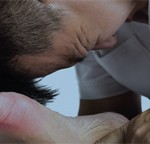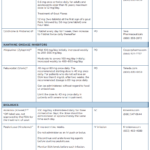Tuhina Neogi, MD, PhD, Now Alan S. Cohen Professor of Rheumatology at Boston University
By Gretchen Henkel
 During a virtual award ceremony in February, Tuhina Neogi, MD, PhD, chief of rheumatology and professor of medicine and epidemiology at Boston University School of Medicine, was celebrated as she was named the Alan S. Cohen Professor of Rheumatology. Dr. Neogi has built a strong national and international reputation as a researcher in osteoarthritis (OA) as well as gout, with over 250 publications to date. She is currently conducting a large, longitudinal study of pain sensitization in those with knee OA, and a large-scale evaluation of crystal deposition in knee OA using dual-energy computed tomography.
During a virtual award ceremony in February, Tuhina Neogi, MD, PhD, chief of rheumatology and professor of medicine and epidemiology at Boston University School of Medicine, was celebrated as she was named the Alan S. Cohen Professor of Rheumatology. Dr. Neogi has built a strong national and international reputation as a researcher in osteoarthritis (OA) as well as gout, with over 250 publications to date. She is currently conducting a large, longitudinal study of pain sensitization in those with knee OA, and a large-scale evaluation of crystal deposition in knee OA using dual-energy computed tomography.
Serendipity often plays a role in research breakthroughs, she said when accepting the award. But when “pulling back the curtain” to reveal the components of success, she noted, it’s clear that mentors, leaders and strong collaborations pave the way for scientific advancements. Viewing her prodigious output of journal articles, multiple awards and collegial partnerships with mentors as well as mentees, it’s also clear that purposeful work and intelligence have met with serendipity throughout her education and career.
Foundations of Success
Science was an early interest for Dr. Neogi, and at her public high school in Toronto, she found herself surrounded by peers who were academically oriented and who supported and encouraged each other. “Back when I didn’t know what peer networking was, I already had a successful peer network,” she reflects. Through her friends, she learned about a program that matched high school students with scientists at the University of Toronto.
Accepted into the program, Dr. Neogi spent time each week in the research laboratory of neuroscientist Arthur Roach, PhD, who is now director of research at Parkinson’s UK. During her second year of university undergraduate work, she worked with biochemist Charles Deber, PhD, at the Hospital for Sick Children (also known as SickKids). It was “really exciting,” she says, to participate in research he was doing in cystic fibrosis, recalling her first positive “hit” in a site-directed mutagenesis experiment of the CFTR gene.
In addition to her excitement about laboratory research, clinical medicine beckoned, and she went on to obtain her MD from the University of Toronto in 1998. Her first exposure to clinical research in medical school was with Amit Oza, MD, then an oncologist at the Princess Margaret Hospital, and now head of the Division of Medical Oncology and Hematology at the Ontario Institute for Cancer Research, Toronto.
Later, as a rheumatology fellow, Dr. Neogi worked with pediatric rheumatologist and physician scientist Rae Yeung, MD, PhD, who mentored her through her first presentation when her abstract was accepted at an ACR annual meeting. Before her presentation at the meeting, she recalled, Dr. Yeung accompanied her to the podium, showed her how to advance the slides and—even more importantly—how to lower the microphone to her height. (That was an emblematic moment that Dr. Neogi has carried through, she says, whenever she is mentoring other women.)
Dr. Neogi says that what she most appreciated about all of these early mentors was the fact that they took the time to both teach and encourage her in her pursuits. “Those experiences were very positive,” she says, “I don’t know whether, without them, I would have continued trying to pursue research in my career.”



